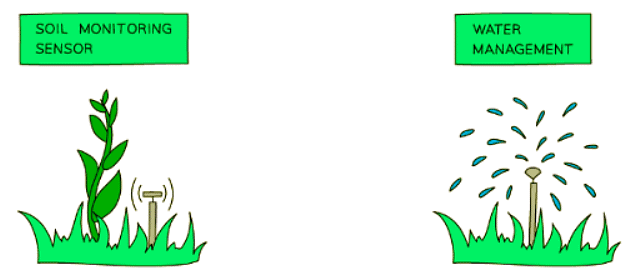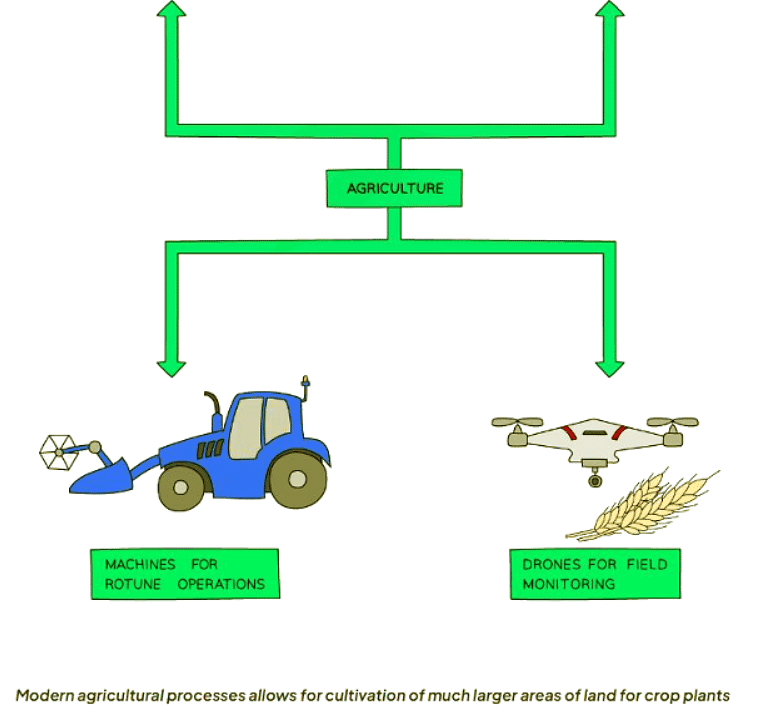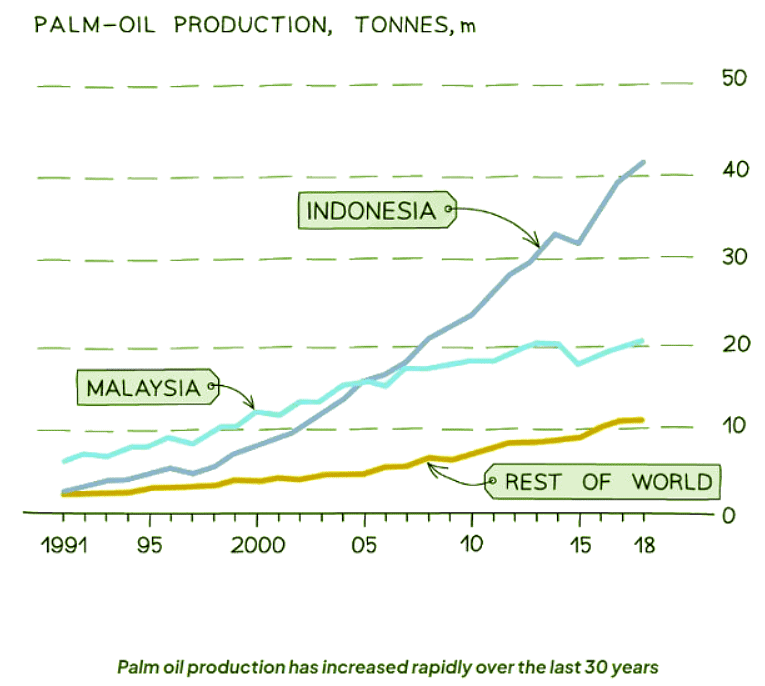Class 10 Exam > Class 10 Notes > Biology for GCSE/IGCSE > Ensuring Food Supply
Ensuring Food Supply | Biology for GCSE/IGCSE - Class 10 PDF Download
Intensive Food Production
- Making food production more intensive involves producing food more efficiently with limited land and resources.
- Modern technology has significantly increased food supply through various means:
- Agricultural Machinery: The utilization of agricultural machinery has significantly replaced manual labor, leading to enhanced efficiency. This advancement enables the cultivation of vast land areas.
- Chemical Fertilisers: These substances play a crucial role in bolstering crop yields by enriching the soil with essential nutrients. Consequently, plants can thrive, resulting in increased production.
- Insecticides and Herbicides: These chemical agents serve to eliminate harmful insects and unwanted weed species. By doing so, they minimize plant damage and fruit loss caused by pests, while also reducing competition from other plant varieties.
- Selective Breeding: Through selective breeding practices, animals and crop plants with high productivity rates are systematically bred. This process aims to develop breeds that consistently yield abundant harvests.


Intensive Livestock Farming
- Developed nations frequently accommodate extensive livestock populations in regions where natural sustenance would typically support only a minimal count.
- These animals are frequently provided with high-energy diets, administered antibiotics routinely for disease prevention, and confined to artificially heated environments and limited spaces that restrict mobility.
Advantages of intensive livestock farming:
- Requires less land to yield significant food quantities.
- Facilitates year-round food production within controlled environments.
- Lowers production costs, allowing for more affordable food prices.
- Demands less labor for food production.
Disadvantages of intensive livestock farming:
- Use of herbicides and pesticides may lead to eutrophication and disrupt food chains.
- Ethical concerns arise due to the mistreatment of animals in intensive farming practices.
- Natural habitats may be sacrificed to expand available land.
- Ecological issues include decreased biodiversity in grazing areas and soil erosion from overgrazing.
- Large-scale cattle farming contributes to increased methane production, a potent greenhouse gas.
Question for Ensuring Food SupplyTry yourself: What is one advantage of intensive livestock farming?View Solution
Monocultures
- Monoculture farming involves cultivating only one type of crop on a specific area of land, like growing palm oil trees in the Indonesian rainforest.
- This practice contrasts with natural ecosystems, where diverse plant species coexist, supporting a wide array of animal species, resulting in high biodiversity.
- In monocultures, the variety of plant species is limited, leading to a significant reduction in biodiversity.
- One drawback of monocultures is the rise in pest populations. When a crop is repeatedly grown over vast areas, it provides abundant food for pests, leading to population surges.
- Farmers often resort to spraying insecticides on crops to manage pests. However, this approach has negative consequences such as killing beneficial insects and causing pollution due to pesticides, which can accumulate in food chains.
Impact of Pesticides on Environment
- Elimination of beneficial insects
- Contamination of ecosystems by persistent chemicals found in pesticides
- Definition: Repeated pesticide use leading to pest resistance
- Example: Overuse of pesticides can make pests like mosquitoes resistant to the chemicals, rendering them ineffective.
The document Ensuring Food Supply | Biology for GCSE/IGCSE - Class 10 is a part of the Class 10 Course Biology for GCSE/IGCSE.
All you need of Class 10 at this link: Class 10
|
110 videos|210 docs|33 tests
|
FAQs on Ensuring Food Supply - Biology for GCSE/IGCSE - Class 10
| 1. What are some examples of modern agricultural advancements in ensuring food supply? |  |
Ans. Some examples of modern agricultural advancements include the use of genetically modified crops, precision farming techniques, and automated irrigation systems.
| 2. How do intensive farming techniques contribute to ensuring food supply? |  |
Ans. Intensive farming techniques help increase agricultural productivity by maximizing the use of land, water, and inputs such as fertilizers and pesticides to produce more food on a smaller area of land.
| 3. What are monocultures and how do they impact food production? |  |
Ans. Monocultures refer to the practice of growing a single crop on a large scale. While monocultures can increase efficiency and reduce costs, they also make crops more susceptible to disease and pests, leading to potential crop failures.
| 4. What is the impact of pesticides on the environment in intensive food production? |  |
Ans. Pesticides used in intensive food production can have negative effects on the environment, such as contaminating water sources, harming non-target species, and contributing to the development of pesticide-resistant pests.
| 5. How can sustainable farming practices help ensure long-term food supply? |  |
Ans. Sustainable farming practices focus on maintaining soil health, conserving water resources, and promoting biodiversity. By adopting these practices, farmers can ensure the long-term productivity of their land and secure food supply for future generations.
Related Searches





















